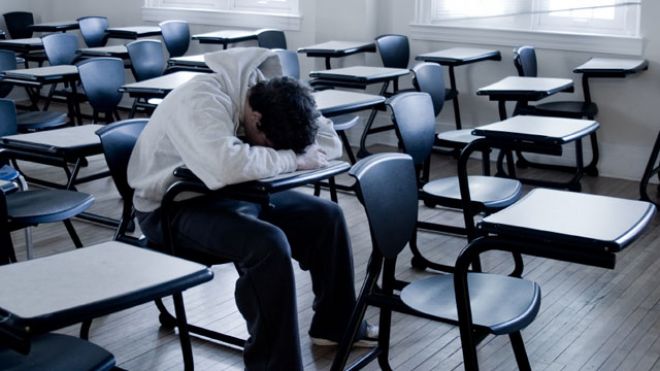
Teens who have a classmate die of suicide are more likely to consider taking, or attempt to take, their own lives, according to a new study.
The idea that suicide might be “contagious” has been around for centuries, senior author Dr. Ian Colman, who studies mental health at the University of Ottawa, said.
Past studies supported the idea, but none had looked at such a large body of students, he said.
“There were a lot of surprising things about this study, we were surprised that the effect lasted so long and just how strong it was,” Colman said.
Colman and his colleagues used data from a long-running national survey of more than 8,000 Canadian kids aged 12 to 17 years old. Students were asked about suicides of schoolmates, friends and their own thoughts of suicide, and researchers checked in with the kids two years later.
By the age of 17, one in four kids had a schoolmate who had committed suicide, and one in five knew the deceased personally, according to results published in the Canadian Medical Association Journal.
For the 12- and 13-year-old adolescents exposed to a schoolmate's suicide, 15 percent reported thinking seriously about killing themselves and seven percent actually made an attempt, compared to 3 percent and 2 percent of unexposed kids, respectively. The effect persisted even if the schoolmate had died more than a year earlier.
Results were similar for 14- and 15-year-olds and 16- and 17-year-olds, but older kids who had not been exposed to suicide were more likely to have thought of or attempted it.
“For 12- and 13-year olds, they were approximately five times more likely to report thinking about suicide,” Colman said. “That's a huge effect.”
They found no difference between kids who personally knew the deceased and those who didn't.
In the U.S., about 4,600 people aged 10 to 25 years old commit suicide, according to the Centers for Disease Control.
NEW POLICIES?
Based on the results, school “post-vention” programs should encompass the whole school, not just those closest to the deceased, and should perhaps revisit parts of the intervention months and years down the line, Colman said.
It may make sense that kids who knew the deceased and those who didn't seemed to have no difference in risk, Frank Zenere, a school psychologist at the Miami-Dade County public school system, said.
“Sometimes the closest friends are not the ones that are most likely to harm themselves because they're so up close and aware of the painful fallout with the family of the deceased, which can actually be a protective factor,” Zenere said.
The younger kids tend to be most vulnerable and impressionable, he said.
“There's a lot more drama in middle school grade levels, they tend to have much more of an emotional outpouring, early teens versus late teens,” he said.
Though the current study indicates the effect persists for at least two years, Zenere believes it may go on even longer.
Some school districts may rewrite policies and procedures in light of these results, but those at most, including his own, are probably already designed to take relevant factors into account.
“It's really important for parents to talk to their kids about mental health and to help them get professional help if needed,” Colman said.
source : http://www.foxnews.com/health/2013/05/21/schoolmates-suicide-victims-at-higher-risk/